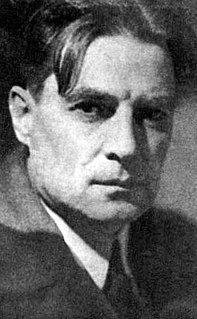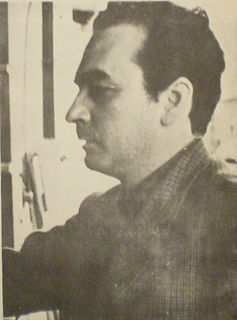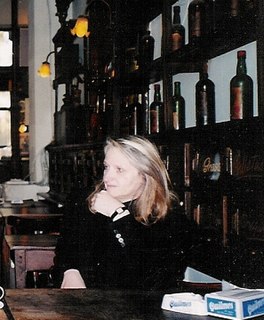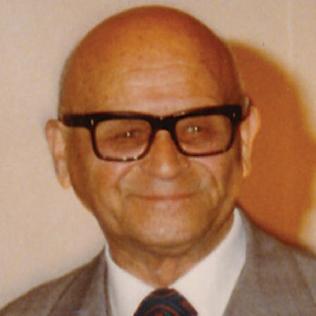 W
WRoberto Arlt was an Argentine novelist, storyteller, playwright, journalist and inventor.
Norman Briski is a well-known Argentine theatre actor, director and playwright, as well as a noted cinema and television actor.
 W
WRoberto Cossa is a prominent Argentinian playwright and theatre director.
 W
WLito Cruz was a prominent Argentine stage director and motion picture actor.
 W
WAntonio Cunill Cabanellas was an influential Spanish-Argentine playwright, theatre actor, director and instructor.
 W
WAgustín Cuzzani was an Argentine dramatist, known for his satiric vision and criticism of capitalist society. He is famous for having created farsátira as a theatrical genre. His most famous and transcendental work is El centroforward murió al amanecer. In 1988 his collected plays were published as "Teatro Completo".
 W
WDiana Raznovich in an Argentine playwright and cartoonist. Her work in both mediums is comedic in tone and deals with feminism, sexuality, and Argentina's military dictatorship.
 W
WArmando Discépolo (1887-1971) was an Argentine playwright. His most productive writing time spanned from 1910 to 1934 and thereafter, he produced theatrical performances of his plays. He is credited with creating and developing the Argentine version of grotesque literature known as Criollo Grotesque or Creole Grotesque, which is characterized by a mixture melodramatic tragic satire and domestic discord.
 W
WEnrique Santos Discépolo (Discepolín) was an Argentine tango and milonga musician and composer, author of famous tangos such as "Cambalache" and many others performed by several of the most important singers of his time, amongst them notably Carlos Gardel. He was also a film actor, director and screenwriter.
 W
WOsvaldo Dragún was a prominent Argentine playwright and the director of Cervantes Theater.
 W
WSamuel Eichelbaum was an Argentine writer. He was born the son of Russian-Jewish immigrants in Villa Domínguez, Entre Ríos, Argentina, Eichelbaum became one of the leading playwrights in the first half of the 20th century in Argentina. He was also a translator.
 W
WGriselda Gambaro is an Argentine writer, whose novels, plays, short stories, story tales, essays and novels for teenagers often concern the political violence in her home country that would develop into the Dirty War. One recurring theme is the desaparecidos and the attempts to recover their bodies and memorialize them. Her novel Ganarse la muerte was banned by the government because of the obvious political message. Gambaro is Argentina's most celebrated playwright, and she was awarded a Guggenheim Fellowship in 1982, as well as many other prizes.
Juan Carlos Gené was an Argentine actor and playwright. He was president and secretary general of the Argentine Actors Association, managing director of Canal Siete and managing director of Teatro General San Martín.
 W
WCarlos Gorostiza Rodríguez was an Argentine playwright, theatre director, and novelist. His seminal work El puente debuted in 1949 and he garnered numerous awards for his proceeding works. He later was Secretary of Culture between 1983-86.
 W
WGregorio de Laferrère was an Argentine politician and playwright.
 W
WLeopoldo Marechal was one of the most important Argentine writers of the twentieth century.
 W
WRafael Obligado was an Argentine poet and playwright.
 W
WPedro E. Pico was an Argentine dramatist, lawyer, journalist and screenwriter. His plays such as La polca del espiante and ¡Para eso se paga! were performed at the Teatro de la Comedia, and he later wrote several plays with Samuel Eichelbaum including Un romance turco (1920) and La Juana Figueroa (1921). In the 1940s he became a successful screenwriter; at the 1944 Argentine Film Critics Association Awards he won the Silver Condor Award for Best Adapted Screenplay with Manuel Agromayor and Alfredo de la Guardia for Juvenilia.
 W
WClaudia Piñeiro is an Argentine novelist and screenwriter, best known for her crime and mystery novels, most of which became best sellers in Argentina. She was born in Burzaco, Buenos Aires province. She has won numerous literary prizes, among them the German LiBeraturpreis for Elena Sabe and the Sor Juana Inés de la Cruz Prize for Las grietas de Jara.
 W
WSixto Pondal Ríos was an Argentine screenwriter, poet and dramatist.
 W
WJuan Manuel Puig Delledonne, commonly called Manuel Puig, was an Argentine author. Among his best-known novels are La traición de Rita Hayworth, Boquitas pintadas, and El beso de la mujer araña which was adapted into the film released in 1985, directed by the Argentine-Brazilian director Héctor Babenco; and a Broadway musical in 1993.
 W
WEduardo Alfredo Sacheri is an Argentine writer and professor of History, graduated in the National University of Luján. He is best known for his novel La pregunta de sus ojos which became the basis for the Oscar-winning film El secreto de sus ojos and its American remake. Sacheri co-wrote the film's script in collaboration with its director Juan Jose Campanella. Sacheri and Campanella were also the screenwriters of the animation film Underdogs. He also published a number of short stories, such as Esperándolo a Tito y otros cuentos de fútbol and Lo raro empezó después.
 W
WWilliam Shand (1902–1997) was a Scottish-born Argentine poet, novelist and playwright. Arriving in Argentina in 1938, he worked for La Nación as a book reviewer, translator and critic. Shand translated the poetry of John Donne and Stephen Spender and was a playwright of multiple works, including the libretto for the opera Beatrix Cenci of Alberto Ginastera. Collaborating with Alberto Girri, they compiled other poets' works into collected editions. Characterized as "a careful observer of contemporary Argentine society" Shand "... often dealt with highly controversial and delicate topics". He split his time between an apartment opposite Plazoleta Carlos Pellegrini and a villa in San Miguel.
 W
WRafael Spregelburd is an Argentine playwright, director and actor. He studied acting and drama at the University of Buenos Aires. From 1995 he started directing, mainly in theatre performances of his own works. He won a number of awards including the Tirso de Molina. His plays are critically acclaimed in Argentina and in some European countries.
 W
WMario Trejo was an Argentine poet, playwright, screenwriter, and journalist.
 W
WBartolomé Ángel Venancio Alberto Vaccarezza (1886–1959) was an Argentine poet and playwright.
 W
WEsther Margareta Vilar is an Argentine-German writer. She trained and practised as a medical doctor before establishing herself as an author. She is best known for her 1971 book The Manipulated Man and its various follow-ups, which argue that, contrary to common feminist and women's rights rhetoric, women in industrialized cultures are not oppressed, but rather exploit a well-established system of manipulating men.
 W
WDavid Viñas was an Argentine dramatist, critic, and novelist.